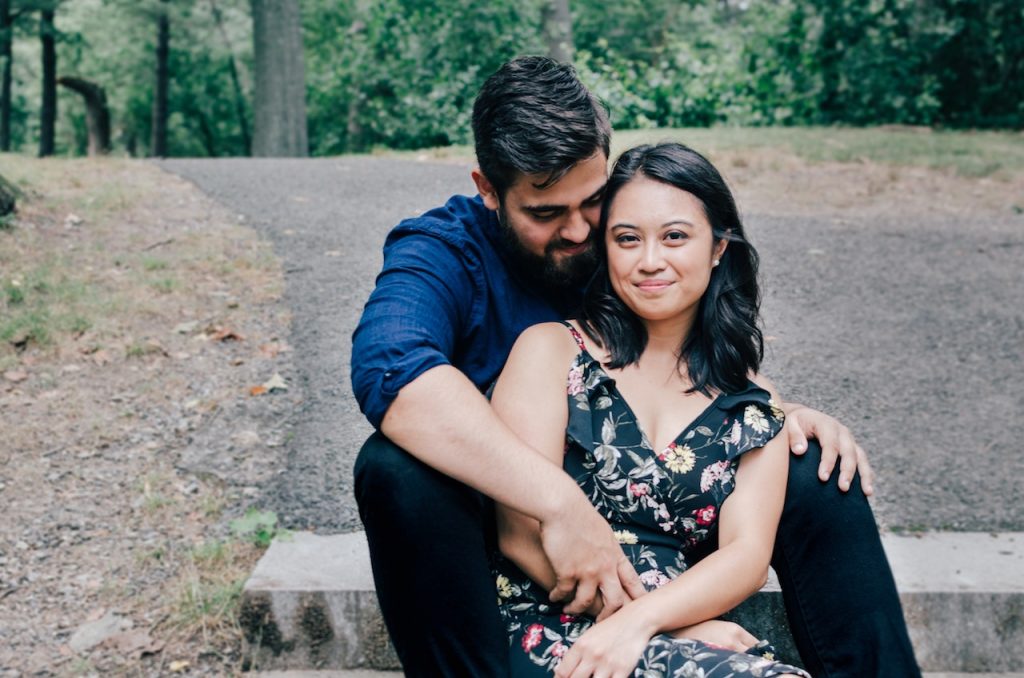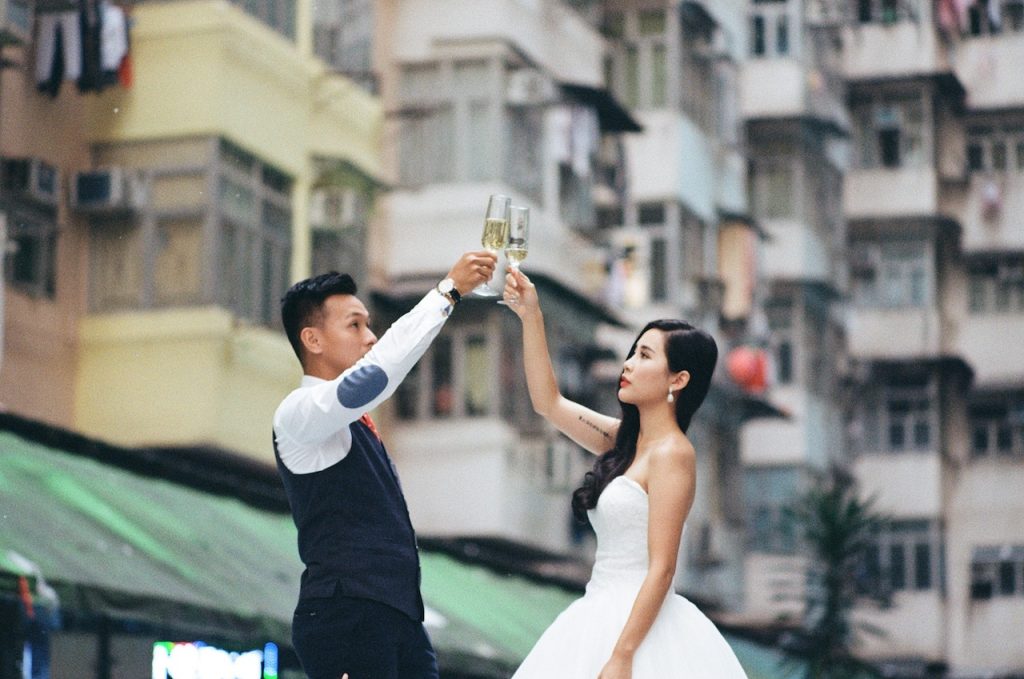One morning, a male colleague muses, “I feel like Singaporean women tend to take on their husband’s surname after marriage if their husband is ang moh.”
The air gets sucked out of the room. Two female colleagues look at each other in shock, horror, then bemusement. Said male colleague hastily clarifies himself before he gets murdered by irate journalists.
“I mean, mine is the most boring one around: Tan. I understand why no one would want to take my surname lah.”
His assessment of his “boring” Chinese surname is, of course, in comparison to an ang moh surname, which might sound more exotic in Singapore.
With that, the whole table erupts into a spirited debate about whether it’s passé for Singaporean women to adopt their husband’s surname after marriage, regardless of how ‘unique’ it is. Even though love and tradition may be compelling reasons to change their surnames, it doesn’t feel necessary or relevant for women to formally adhere to this custom as much in this day and age.
Someone then points out that there are still people who combine Chinese and Western surnames, while another chimes in that everyone who has taken on their husband’s surname or adopted a double-barrel surname seems to have a Caucasian husband.
There is a glaring lack of mention about interracial marriages not involving Caucasian men or men with Caucasian sounding surnames.
“So what are some reasons women still change their surnames?” asks the first brave soul.
“Personal branding.”
I hear the words escape my mouth before I even register what I say. But before I can explain, I catch a few nods and wry smiles around the table; it seems I’ve said what everyone thinks but no one wants to admit.
After all, few would confess to allowing a superficial reason to guide such a monumental decision.

Just ask Deborah Tan, who took on a double-barrel surname about two years after marrying her English husband (whose surname is Pink) precisely because of work.
After being in the media industry for more than a decade, “Deborah Tan” was pretty “established”; when anyone googled her name, she would appear on the first page. Even so, Deborah’s name didn’t help her land interviews when she found herself delving into tech—a completely new field.
“This was particularly so when it came to my applications to global companies. Then I decided to try going with Deborah Tan-Pink. I don’t know if it improved anything, but somehow that got me more interviews after,” she says.
After Deborah changed her name on LinkedIn, it eventually stuck, so much so that one of her colleagues even assumed she’d added “Pink” to her surname because she was a fan of the colour. (He couldn’t be more wrong.)
In her personal circles, however, she remains “Deborah Tan”.
“I have friends who take on their husbands’ surnames because when they travel to more conservative countries, immigration wouldn’t give them such a hard time. Or when they have biracial kids, and it’s a necessity, because you wouldn’t want cops to stop you in the middle of the highway and accuse you of kidnapping!” she says, half-jokingly.
“Whatever the reason, it’s up to the woman. No one should be giving her any grief.”
By the same token, a Malay friend (who doesn’t want to be named) shares that she would take on her Chinese husband’s surname, Chiam, if her career calls for it.
“I probably won’t change my name in the future unless I feel that my Malay surname limits my career prospects due to the negative cultural perceptions of being Malay. But that’s an easy fix without having to go through the rigmarole of legal documentation,” she says.
In the meantime, she still prefers to be called “Ms” rather than “Mrs” despite being married for more than three years. She also hasn’t gotten any flak for not changing her name, and posits that she’d be angry if she had.
“My name, or rather my father’s name, is still my father’s name. I don’t suddenly stop being my father’s daughter once I get married.”

Yet in 2019, some women still do it for—gasp—love.
When Joan Ang Bissdorf married into a German family, she retained her maiden name as part of her identity and removed her Chinese name while taking on her husband’s surname. Her reason was simple and definitely had nothing to do with “personal branding”: she loved her in-laws.
“My [Singaporean Chinese] family didn’t seem to mind too. They are a little traditional that way, what with married women belonging to their husband,” she shares.
“My mum was a little annoyed that I decided not to keep my Chinese name though, but I explained that it would be ridiculous to have a name like Joan Ang Liting Bissdorf. Between honouring my given Chinese name and the ‘Ang’ that came from my ancestors, I chose to prioritise the latter.”
On the practical front, Joan had plans to relocate to the US four months after her wedding, which didn’t leave her much time to get a deed poll and apply for her visa with the new name. If she’d only changed her name after arriving in the US, that would have created unnecessary immigration paperwork.
Even if she hadn’t planned to relocate, she maintains that she would’ve “probably” still changed her surname immediately after she got married, albeit a little cautiously and “definitely after pondering a few days”. The nature of her work in Singapore meant she had to work closely with big and small businesses.
“I think upfront there would be a gulf in communication and being relatable had I approached the local SMEs and towkays with a foreign surname,” she says.
Along the same vein, Debra’s career was the reason the Singaporean Chinese woman retained her Chinese surname instead of taking her Indian husband’s after she got married. (For the purpose of this article, she doesn’t want to reveal either surname because of her job.)
As a teacher, Debra preferred to keep her maiden name to prevent parents from finding out more about her than she’d like. She doubts that she’d ever change it on paper, because it’s an “unnecessary hassle” and not a tradition in her or her husband’s families for wives to adopt their husband’s surname.
“That said, I’d probably have no qualms about using my husband’s surname unofficially when I become a parent, such as when signing off on consent forms. For personal matters like doctor’s visits, however, I’d stick to my maiden name,” she explains.
Unlike Joan, however, Debra had no need or want to change her surname, even though that obviously didn’t mean she loved her husband any less.

On one hand, most people understand “personal branding” as a specific public identity that we create for ourselves. On social media, personal branding can range from catchy Instagram handles to naturally memorable monikers; in the workplace, a memorable full name might be exceptionally useful in establishing a professional identity.
On the other, as the women in this piece have shown, the decision to change one’s surname after marriage cannot simply be whittled down to mere aesthetics, career progression, tradition, or love.
Marriage is a relationship between two families with their own histories, possible class and culture differences, and sets of values. Where a surname change is concerned, interracial marriages might also pose different challenges, depending on the race of each spouse and the subconscious biases behind society’s perception of each race.
For instance, a name like “Ming Lim” might be significantly more forgettable or overlooked in Singapore compared to, say, “Ming Pereira”, “Ming Hassan”, or “Ming Kumar”. Again, however, the biases attached to each surname depend on the context that Ming states his full name, whether it’s looking for a job in a multinational company, standing out on social media, or introducing himself to a new acquaintance.
While it might appear that the most memorable surnames are not from the majority race in the country (i.e. Chinese surnames might be the least interesting in Singapore), it could also be the case where ‘mixed race’ names or double-barrel surnames are generally more distinctive, even if both surnames come from the same race in the latter scenario.
So for all our talk about being a multiracial society that ‘doesn’t see race’, the fact is we do. And the lens through which we understand different surnames is associated with our implicit classist hang-ups about each race.
Still, that’s not to say that marriages between those from the same race (i.e. the majority) face no issue when it comes to surname changes.
For all I know, my colleague who lamented his boring Tan surname might be deemed more ‘interesting’ if he was, say, a Chuah, Lam, or, frankly speaking, even a Wong.






